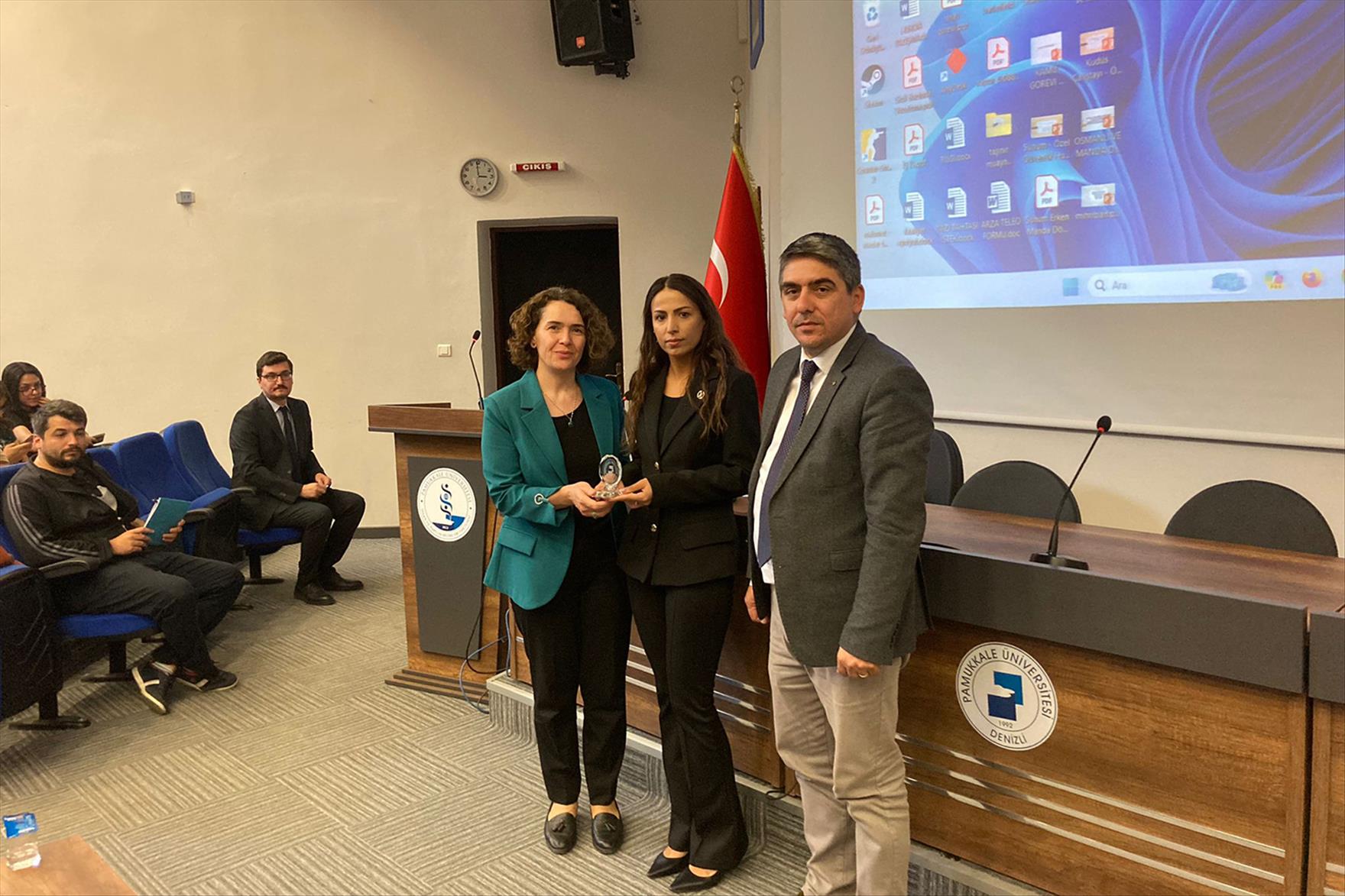The Fourth Academy Meetings Held at ITBF
17.05.2024
The fourth of the Academy Meetings organized by Pamukkale University (PAU) Faculty of Humanities and Social Sciences (ITBF) was held at Prof. Dr. İsmail Çetişli Conference Hall with the title 'Women in Ancient Mesopotamian Law'.

At the event, Prof. Dr. Hanım Hande Duymuş Fiorioti gave information to the participants about the ancient Mesopotamian culture. Prof. Dr. Duymuş Fiorioti mentioned the following in her presentation: “Although the societies that lived in ancient Mesopotamia had different names such as Sumer, Akkad, Assyria and Babylon, they managed to create a common Mesopotamian culture. Since these societies were patriarchal, the daughter lived under the dominance of her father. Through marriage, this dominance passes from the girl's father to the groom and marriage is based on the purchase of the girl. In the marriage, the male party pays a bride price to the girl's father and the girl brings a dowry from her father's house in return. Since girls bring dowry when they get married, they do not get a share of their father's inheritance. If the father dies before the girl is married, this duty passes to the brothers. While marriages are generally based on the principle of monogamy, it is also understood from the articles of law that a person has the right to have more than one marriage if certain conditions are met. For example, having children is important to ensure the continuity of the generation, and a woman's lack of children is one of the factors that may lead to polygamy. A marriage is not valid if there is no marriage contract. For this, the man declares that he has taken her as his wife in the presence of two male witnesses and covers her head. When a woman's head is covered, it means, in very crude terms, that she is “owned”. Today, the expression “her head is tied” is still used for girls who are promised or engaged. Today, in some regions of the Southeast, the expression “a veil was put on her head” is used in this sense. An examination of the articles on violence against women from ancient Mesopotamian legal texts reveals that violence was perceived as sexual violence = rape, verbal violence = slander and physical violence = infanticide. In addition, the social status of the victimized woman (married or single) and her social status (slave or free) played a decisive role in the punishment of the offender.”
After the presentation, Vice Rector Prof. Dr. Durmuş Akalın presented a gift to Prof. Dr. Hanım Hande Duymuş Fiorioti.
After the presentation, Vice Rector Prof. Dr. Durmuş Akalın presented a gift to Prof. Dr. Hanım Hande Duymuş Fiorioti.
